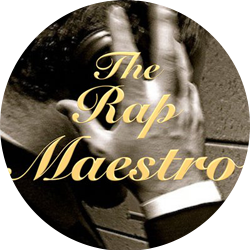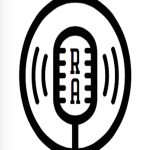Well, I’ve put this post off long enough, and it can no longer be ignored. It is time to give the people what they want, and that is to know what it is I actually do as a composer-in-training. I’ve avoided doing this post not because I don’t want to do it, but because to describe what a composer does is actually really, really difficult. Let me start from the outset by offering a disclaimer when I say that there will always remain something about my work (or any composer’s work) that is ineffable, that is, something that cannot be put into words. That is part of the beauty of composing, but also a pitfall when trying to describe composing to other people. However, I will instead try to define the limits of this indescribable area as small as possible, so that you might just find out what a composer does.
Oftentimes, whenever I say that I’m a composer (in the broadest terms, someone who writes music) I am greeted with dumbfounded looks. “I have no idea how you do that,” is a sentiment I’ve often heard. I think my writing of music finds it origin in the deep love I have for music. Even if for some reason I were unable to write music, I would be constantly listening to it. And even if for some reason I cannot pursue composing as a viable career path (which I really, really, really hope isn’t the case,) I will still be composing years down the road, and that’s part of the beauty of music. Even if you don’t pursue it professionally, it can still be totally yours, while at the same time everyone’s, and always there for you. I struggled a long time with this. But my writing is something that I cannot stop. If I was born to do anything, and I hesitate to speak in such philosophical terms, it was to write music. One of my greatest fears over the past few years was that I would wake up 10 years from now and realize that I was stuck in some dead-end office job that I hated. However, now pursuing music, I am not afraid of that. And I think this deep love of music finds its own origin in the fact that I am very strongly affected by music whenever I hear it. It was definitely a revelation for me in my own maturation as a composer when I realized that music affects me much more strongly than other people. I was horrified when I met someone who actually hated music (his or her reasoning was it was “boring” and “nothing ever happened.” I question whether he had actually ever heard music.) This strong affect manifests itself physically. For instance, whether I’m in the shower, eating, watching TV, whatever, I might be tapping out a rhythm with my hands or feet, singing a tune I’ve heard from somewhere (the TV, church, car radio… I take constant delight in all of the small times and places I run into music), or even manipulating and working on a melody from my own work. I would not be surprised if this fact had its basis in some physiological part of my brain.
With this basis for my writing, how exactly do I make the choices that I do? I describe it like this: I know what sound in the music I’m looking for, and I can’t really describe the sound of what I’m looking for, but I’ll know it when I hear it (the sound I want.) By my reasoning, what I’m looking for has to be there. So if I just keep looking for it, eventually I will find it. As I addressed in my post on inspiration, scores do not come out the first time in their perfect, immaculate form. A lot of it is trial and error. I am constantly trying different things until I find exactly what it is I’m looking for. Sometimes this happens quickly; most often, it takes a longer amount of time, and sometimes it takes a very long time. But it’s important to keep in mind that even when I throw out some music I’ve written that I may have been working on for hours (as is sometimes the case), it actually was not wasted time, because it has helped me sharpen my ear and my focus and my knowledge of what it is I’m exactly looking for. One of the amazing things about composers is that one would never mistake any of the greats for any of the others. For instance, one would never confuse Aaron Copland for Samuel Barber, or Claude Debussy for Maurice Ravel, even though both of those respective pairs write music that is similar to each other. That is because the music of each is imbued with such originality and unique-ness that it’s impossible to confuse them for each other. And all of that is really a function of an interaction, or conversation, with all of the techniques and parts of music (harmony, counterpoint, melody, rhythm, timbre, etc.). That is to say, a young composer must get to know and become familiar with all of these techniques, and then make certain decisions on what he or she does and does not like. As a composer trying to find my own unique voice (as I believe, with this requiem I’m working on, I’ve started to do), I need to decide what I kinds of sound please me from all the aforementioned parts of music (harmony, etc.) and what techniques I like the effect of, and then conversely what I don’t like. Then I throw out what I don’t like, and then I decide how to use what I do like. I’m constantly amazed by the way music is able to re-invent and re-define itself. Just when a composer seems to have exhausted all of the paths of a technique, someone comes along and uses it in a new way, possibly by combining it with something else. All composers have the same techniques available to them. Although this list of techniques is constantly being added to (as 21st century composers living in an age of all digitalized information, we have the advantage of being able to go back to the music of previous centuries and their way of doing things, which certainly earlier composers such as Berlioz did not, who were often familiar only with the music directly preceding their time), at any one time the list is finite. Hence, all composers choose and discard from the same materials and techniques. But make no mistake: the list of techniques and sources from which to generate musical material is very, very big. To have to describe these techniques would begin to need some music theory education. However, just know that these techniques are ways by which composers generate ideas and work in their craft of writing music.
And of course, as I’ve sprinkled references to throughout, I’ve had to make all of these decisions for myself as well. I am starting to find out what I like and what I don’t like. In the most general of terms, I like broad, open music, with lots of space between notes (and doesn’t this correspond to many of the influential works I’ve put on this blog? Think of the Copland, Barber, and Ravel videos from other posts.) I like pure sounding intervals (an interval is the musical distance between two notes.) I like flowing melodies that unfold. I like to say less rather than say more, and to really think and even maybe meditate on the music itself. I like a certain sacredness to my music that is more spiritual rather than being explicitly for a religious context. I hope that this manifests itself as a feeling of timelessness of my music; that is, that in a way, my music could have been written in any time period, as something that is and always will be. I try to evoke this by writing in a neo-Gregorian style. That is, in a “new” Gregorian chant style (think of the Arvo Pärt.) My melodies are not taken from Gregorian chant sources, but they sound like they could be. This makes it sound traditional. However, I combine this tradition with a very modern background that makes use of harmonies that Gregorian chant never would.
I think this is enough to digest for now. I will be doing articles like this, that I call “Windows into a Composer’s Life”, from time to time. These articles will take on my work headfirst, and really try to give concrete answers about the work of a composer. I encourage you to read and re-read this article, as it is full of information and insight into what it is I do. You might find something you missed the first time around.
And again, if you have any questions, let me know! I was happy to share this very important part of my life with you.


 Join the weekly RapAnalysis newsletter at
Join the weekly RapAnalysis newsletter at
Martin – Wow! This post has really helped me to understand the passion that drives your composing efforts. It is so wonderful to hear someone speak of his daily work with such intensity. I'm glad that it makes you so happy and I pray, too, that you will be able to do this as your life's work, rather than a "hobby". As you say, though, either way, it belongs to you and is part of the fabric of your Life. No one or thing (like a job) can ever take that away from you. I admire your courage in exploring such unknown territory and I pray that you continue to find such peace in the pursuit.
xoxox
MOM
Just re-read this post and really appreciated your description of the style of music that appeals to you – open, pure intervals, flowing melodies, sacred, etc. It gives me a better sense of your music, and even helps me anticipate what your requiem will sound like!